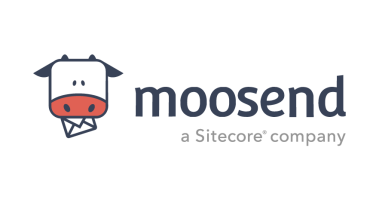
Donald Trump’s call for companies to abandon quarterly earnings reports in favour of biannual reviews has reignited a familiar debate: does short-term reporting undermine long-term growth? The argument often focuses on timing – quarterly versus half-yearly. But the real issue runs deeper. It’s about the culture we create when businesses are wired for short-termism rather than long-term sustainability.
The fact is, many businesses today are focused on short-term goals. The idea may be lasting but the vision is short. But the most successful companies are not built to flip, float or exit – they are built to last. And that means constructing organisations that consistently unlock the best in their people, produce enduring value and outlive any individual leader.
It’s easy to see the difference. The legacy businesses thriving today were built on principled values and a sense of responsibility to their communities. Take Cadbury, a family business born out of a single grocery shop. It developed into a town designed for workers to leave a crowded, dirty city and enjoy a better quality of life. Starbucks began with the ambition to be the ‘third place’ between home and work, and was notable for offering its staff a variety of working options and good healthcare benefits.
Just last week I listened to a member of Specsavers’ leadership team talking about the values of the business. It is still privately owned by the two optometrists, Doug and Mary Perkins, that started it in 1984 and prides itself on its core value of “treating others as we would like to be treated”. It’s no surprise in a world where brand slogans change with each succession of leadership, that Specsavers still thrives on the strength of its simple yet enduring slogan, ‘Should have gone to Specsavers’. That’s a long game worth playing.
Having a north star in challenging times
These brands have endured, not because it’s easy, but because they were built with a long-term mindset – a vision that goes well beyond a quarterly reporting cycle. Any leader can talk to the cultural, political and economic challenges that businesses are facing at every turn. But having principles that are rooted in the greater good can be incredibly grounding and create foundations of customer focus, staff retention and ultimately organisational resilience.
Contrast that with the short-term pressure that quarterly earnings can create. Faced with the demand for quick results, leaders in retail businesses, for example, often turn to promotions or discounting. These tactics deliver a sugar-rush of sales, but in the long term, they cheapen the brand and train customers to wait for the next offer. The same can be said of all businesses: focus too narrowly on this quarter’s numbers, and you risk undermining the very foundations of future value.
That doesn’t mean accountability should vanish. But it must be directed towards building a resilient enterprise, not simply satisfying investors’ cravings for quick returns. At my company, we spend our time strengthening the elements that make a business truly valuable: scalable systems, a strong culture and effective management teams. A business that runs smoothly without depending on its founder is one that is genuinely built to last. Ironically, many leaders chasing the short-term exit neglect these fundamentals and therefore end up eroding the value they set out to create.
The infinite mindset and the infinite game
In his book The Infinite Game, Simon Sinek draws a crucial distinction between finite and infinite mindsets. Too many businesses, he argues, are run with a finite mindset: built to hit targets, extract value or chase an exit. The result can often lead to a decline in trust, a loss of cooperation and stifled innovation.
By contrast, companies with an infinite mindset focus on building for the long term, guided by vision, values and purpose. They aim to outlast their leaders and leave a legacy.
Even legacy businesses must evolve to maintain relevance and sustainable growth. We are being approached far more regularly by businesses and brands to support the brand and cultural transformation they need to remain dynamic.
Take the legacy law firm Mishcon de Reya. Founded in 1937 as a small law firm above a bank in Brixton, the now-global business has about 1,450 employees worldwide but still calls itself an 88-year-old startup. Its principles are entrepreneurial, ambitious and brave, and these have enabled it to transform internally and externally and become fit for a world that has changed significantly.
Long-term thinking doesn’t mean that timely accountability is ignored. The challenge is to balance the two. Parkinson’s Law states that your work expands to fill the time available. This applies as much to businesses as it does to individuals. At my company, we’ve tested quarterly incentive schemes for client teams and found that shorter-term goals can sharpen focus and drive accountability when applied at the right level. The challenge is not in determining quarterly versus biannual or annual reviews, it’s ensuring that incentives are aligned and balanced with building something enduring, not just producing a short-term bump.
Steps for long–term success
Balancing accountability with long-termism starts with ensuring the organisational foundations are in place. This means, first, articulating clearly why the business exists and the vision it is pursuing, beyond shareholder returns. Secondly, it means developing a culture and behaviours that build trust, attract talent and create an environment where people do their best work. Finally, it’s about ensuring resilient systems, processes, structures and leadership depth that enable the business to grow and thrive independently of its founders.
Quarterly reporting or short-term mindsets will not disappear overnight. But leaders can choose whether they are playing a finite game of short-term gain or an infinite one of long-term value. The companies that endure are not those that master financial reporting cycles, but those that build from the inside out. They are rooted in purpose, guided by culture and committed to creating something enduring.
The measure of a great business is not this quarter’s results, but the legacy it leaves behind.
.Jason Foo is the founder and CEO at BBD Perfect Storm, a brand agency.

Donald Trump’s call for companies to abandon quarterly earnings reports in favour of biannual reviews has reignited a familiar debate: does short-term reporting undermine long-term growth? The argument often focuses on timing – quarterly versus half-yearly. But the real issue runs deeper. It’s about the culture we create when businesses are wired for short-termism rather than long-term sustainability.
The fact is, many businesses today are focused on short-term goals. The idea may be lasting but the vision is short. But the most successful companies are not built to flip, float or exit – they are built to last. And that means constructing organisations that consistently unlock the best in their people, produce enduring value and outlive any individual leader.
It’s easy to see the difference. The legacy businesses thriving today were built on principled values and a sense of responsibility to their communities. Take Cadbury, a family business born out of a single grocery shop. It developed into a town designed for workers to leave a crowded, dirty city and enjoy a better quality of life. Starbucks began with the ambition to be the ‘third place’ between home and work, and was notable for offering its staff a variety of working options and good healthcare benefits.





